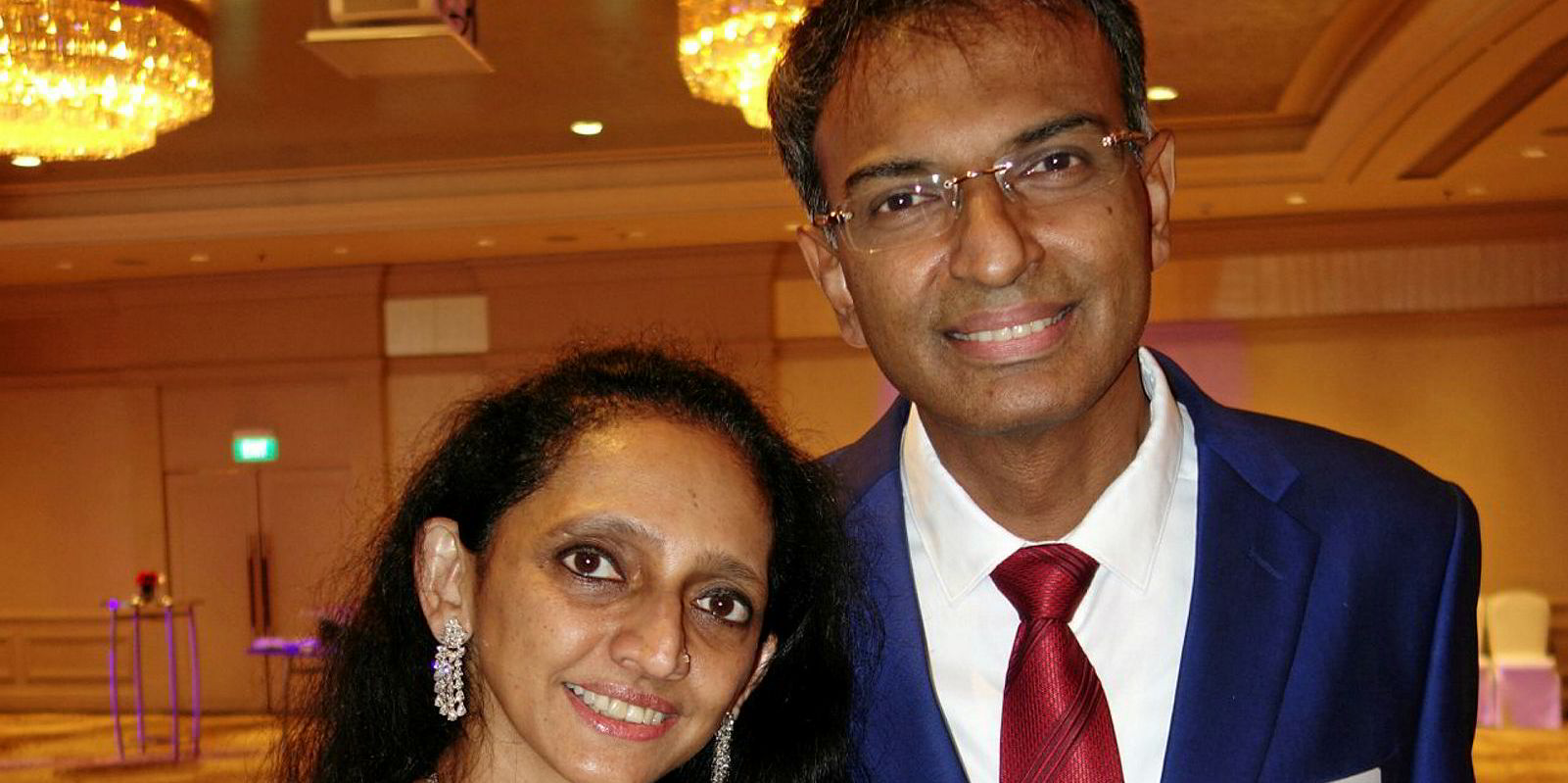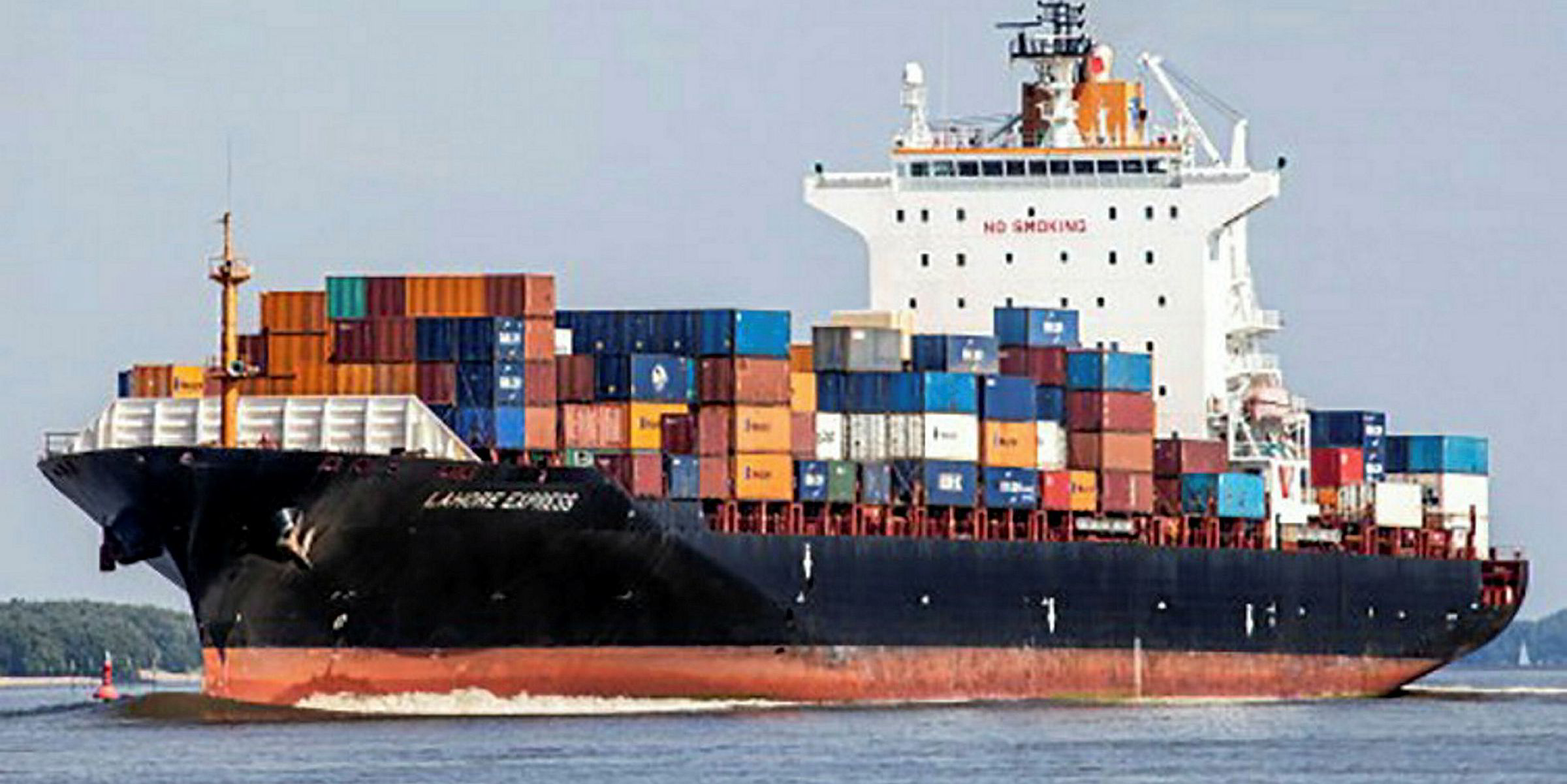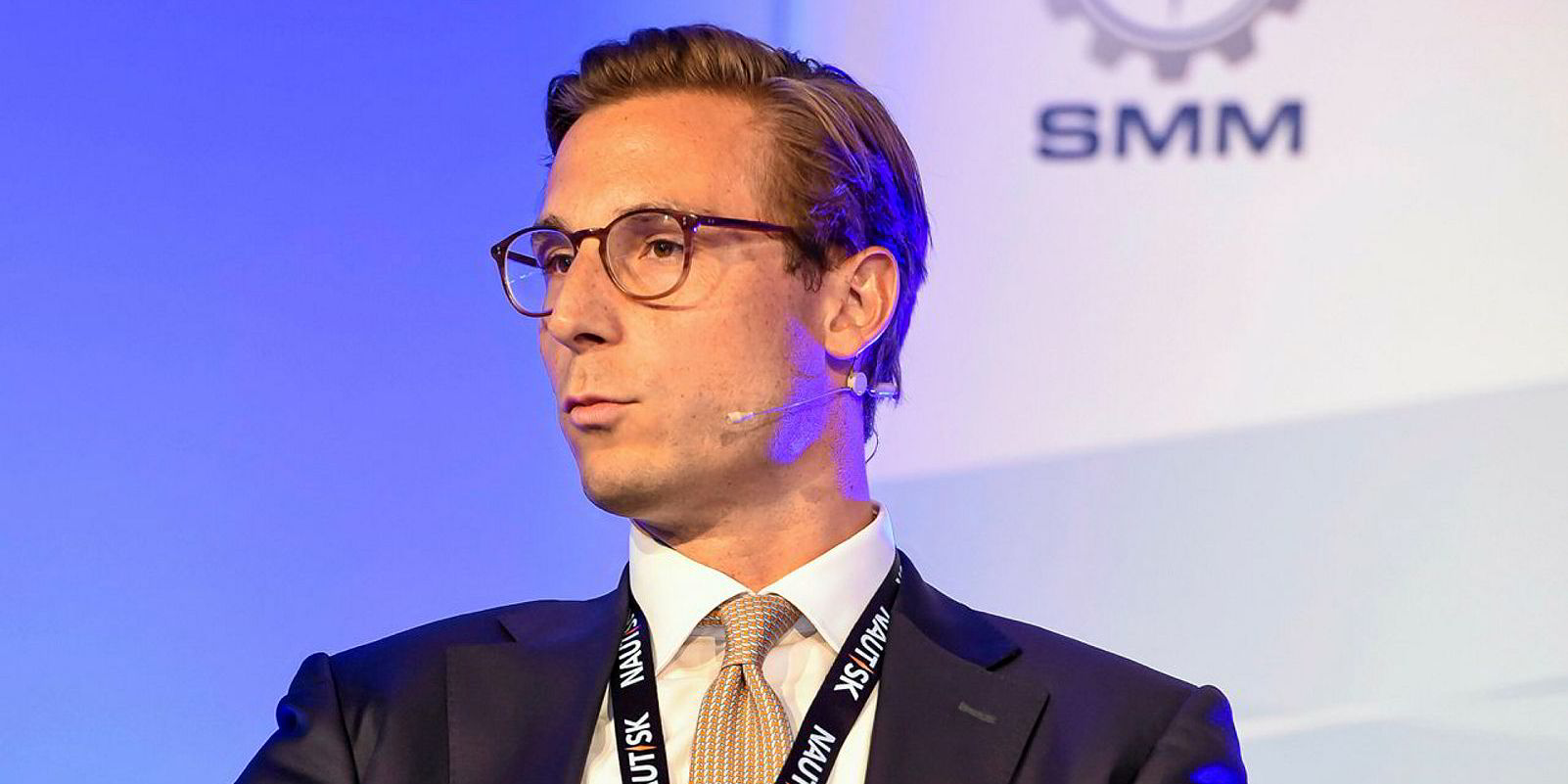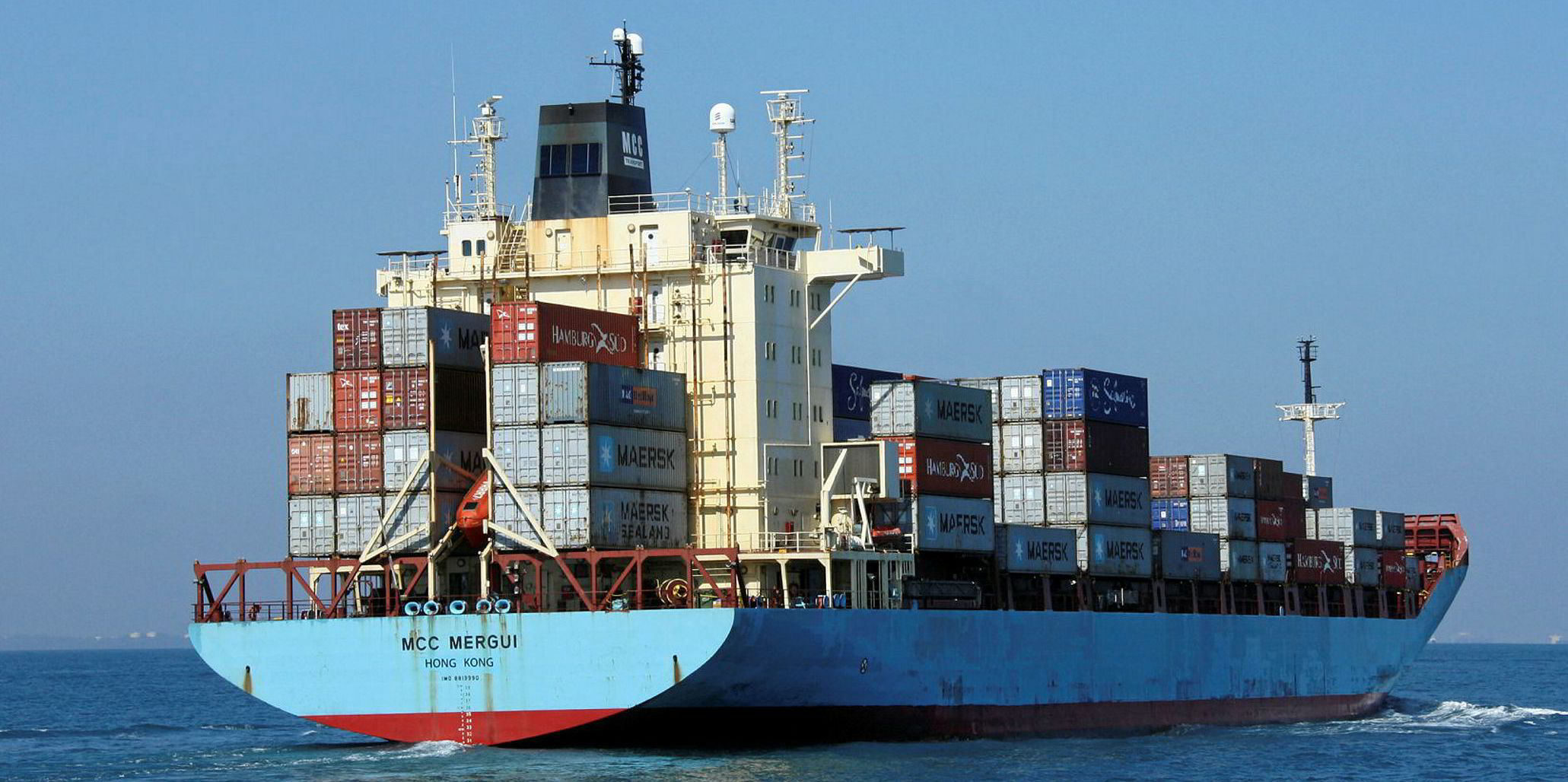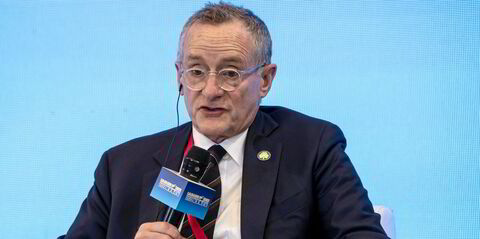Transworld Group Singapore is not a company that likes to toot its own horn too often, but it pulled out all the stops recently to celebrate its 20th anniversary. It had good cause to do so.
Starting off as a small feeder operator with a couple of routes, it has over the intervening two decades developed into a significant regional liner player with its own ships, cargo, terminals and associated logistics infrastructure.
The ride has sometimes been rough and fraught with difficulty, but the journey is one that founder, chairman and chief executive Mahesh Sivaswamy believes has made the company resilient and ready for the future.
“I credit this to the staff. When times got tough, they put in their magic and turned us around. Most of them are still with us, and my faith in them remains strong,” he said.
The younger son of R Sivaswamy, founder of India’s Transworld Shipping Group, a company best known for its liner arm Shreyas Shipping, Mahesh Sivaswamy arrived in Singapore in July 1999 with the task of expanding Shreyas’ liner business in Southeast Asia.
Transworld Group Singapore, an independent entity under Sivaswamy’s full ownership and control, was set up as a holding company for two separate business units. Shreyas World Navigation, which was later renamed Liberty Navigation, was founded as a shipowning arm, while Orient Express Lines Singapore was created as a feeder container service provider.
Control of Transworld Shipping Group, now headquartered in Dubai, lies with Ramesh Ramakrishnan, Sivaswamy’s older brother. It too has a feeder business called Orient Express Lines that is operated out of Dubai, although it is completely independent of Sivaswamy’s Orient Express Lines Singapore. Both companies cooperate closely, which sometimes leads to confusion in the market about who owns and operates what.
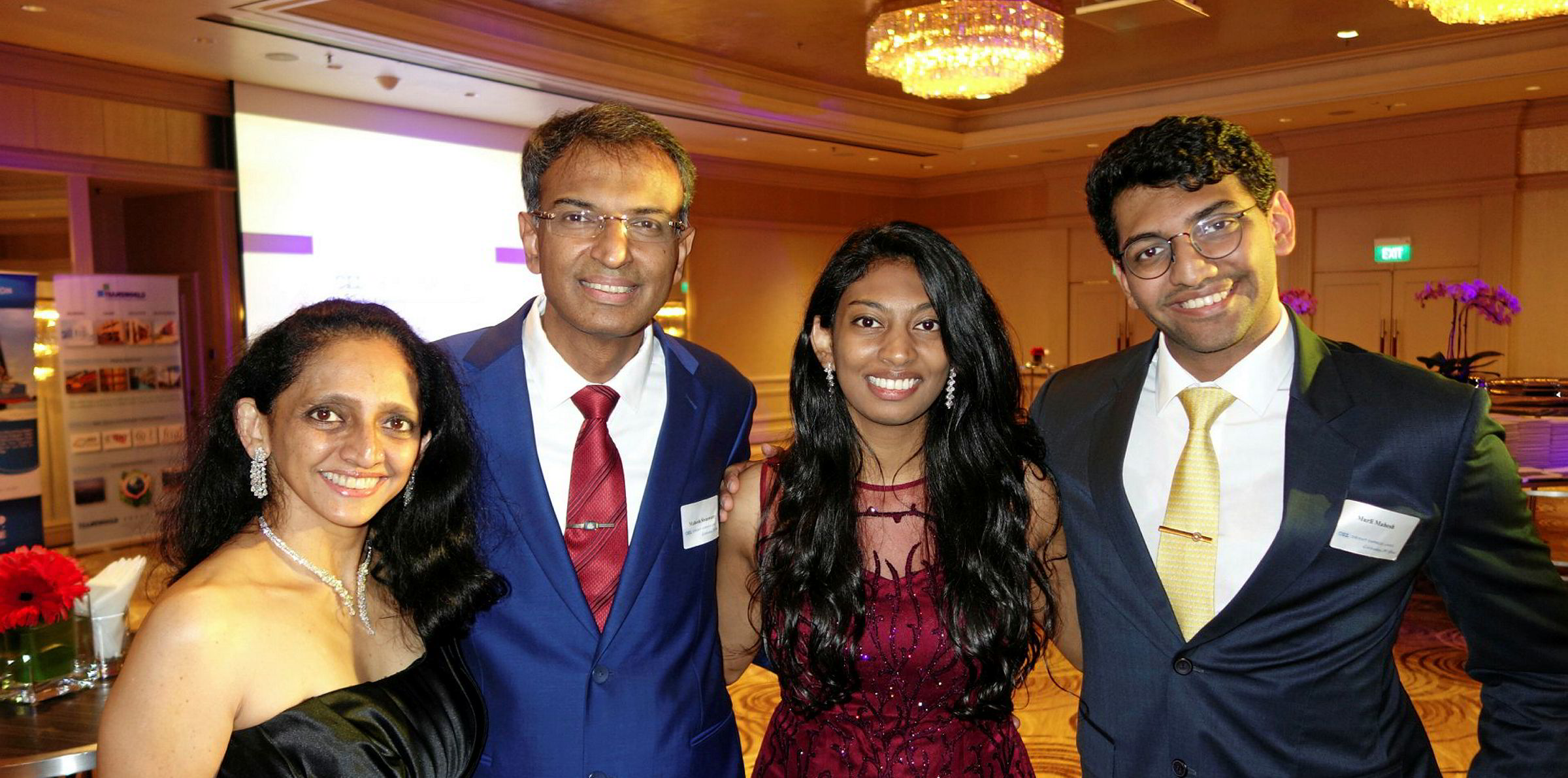
Back in 1999, Transworld Group Singapore was the small kid on the block in the Asian feeder market.
“We started very small, with three services linking Singapore with India, Bangladesh and Myanmar,” Sivaswamy explained.
Maersk was Orient Express Lines Singapore’s first and largest customer. When the AP Moller-Maersk subsidiary switched its transshipment business from Singapore to the nearby Malaysian port of Tanjung Pelepas in late 2000, Orient Express Lines Singapore followed.
What made the change possible for us was that there were people in this company who never gave up. They worked absolute magic, going out and getting us new customers
Mahesh Sivaswamy
“We were a small, unknown operator. They were our main customer, so of course we followed. We had no choice and nothing to lose,” said Sivaswamy.
Orient Express Lines Singapore was one of two feeder companies that Maersk used out of the port of Tanjung Pelepas, giving each a 50% share of its feeder cargoes. Maersk provided Orient Express Lines Singapore with 80% of its revenue.
As Maersk’s feedering requirements kept increasing, Orient Express Lines Singapore kept on growing and adding new routes. All went well until 2007, when the Danish shipping giant brought in MCC Transport, its own feeder arm.
“They gave us three-months notice that our services were no longer required. It was the most difficult period we have ever faced. I honestly thought we were gone,” Sivaswamy lamented.
His pessimism at the time was understandable. Orient Express Lines Singapore had a large number of containerships on high-priced charters, while Liberty Navigation had just taken delivery of a couple of costly newbuildings. It was stuck with empty ships operating out of a port where its main customer was the dominant player.
To salvage the company from what appeared to be a bleak position, Orient Express Lines Singapore first had to move its ships back to Singapore. It then had to try and find customers at a port that was well served by other feeder operators.
“What made the change possible for us was that there were people in this company who never gave up. They worked absolute magic, going out and getting us new customers,” Sivaswamy explained.
The two newbuildings were fixed out under charters of two years at rates of $14,000 per day, which allowed Transworld Group Singapore to pay their mortgages on time despite the subsequent global financial crisis in 2008.
To fill the other ships, Sivaswamy went to China and bought 300 containers.
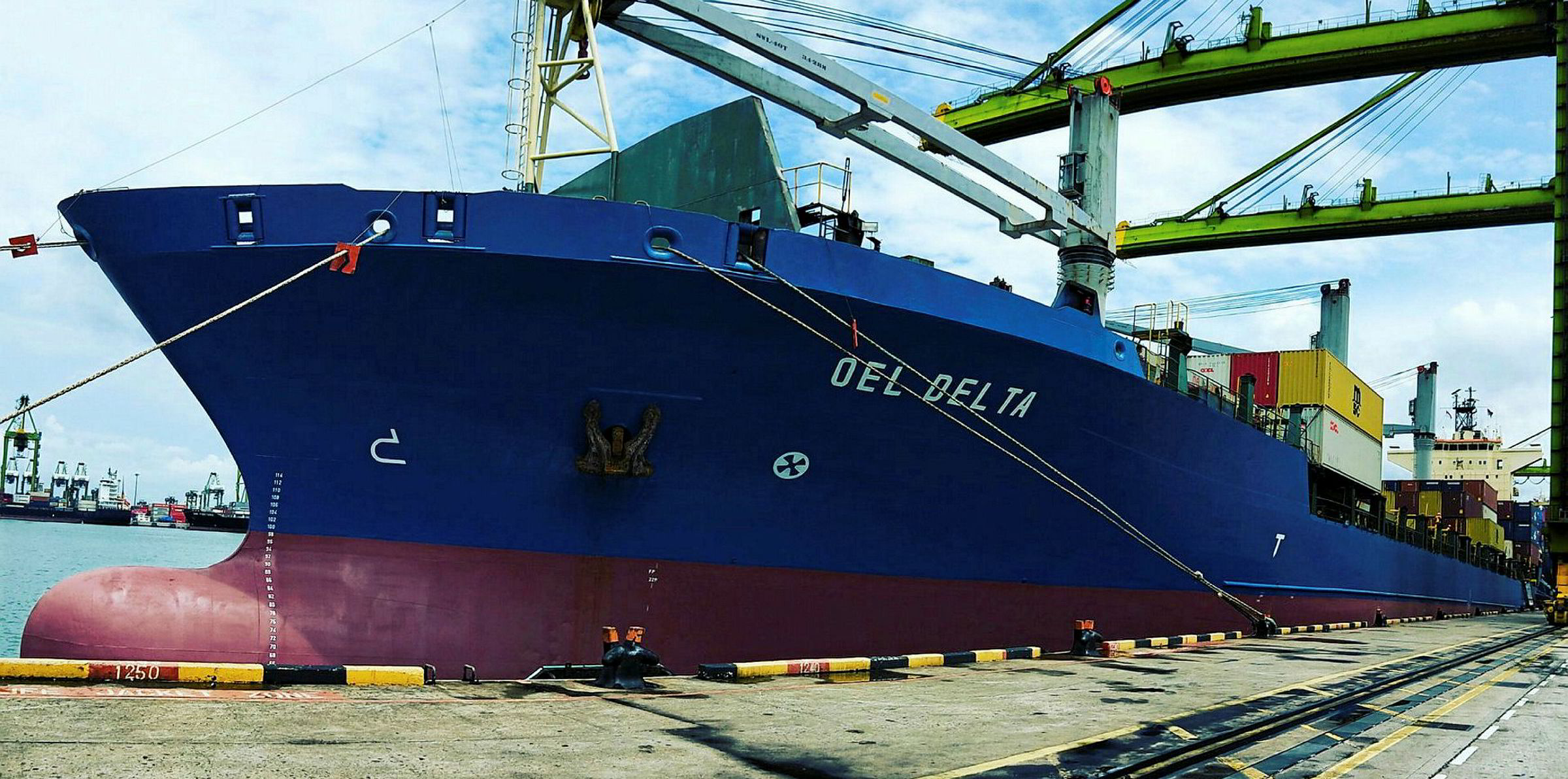
“We had all that available space on the ships, so I told the staff to go to Bangladesh and fill the containers. The idea was to load them on our ships and earn a bit more income,” he said.
That move gave birth to BLPL Singapore, a liner company that today owns 35,000 dry, reefer and tank containers and operates a service network that includes the Indian subcontinent, Southeast Asia, China, the Middle East Gulf and East Africa, using Singapore, Port Klang, Colombo and Jebel Ali as transshipment hubs.
BLPL Singapore moves the majority of its cargo on Orient Express Lines Singapore and Orient Express Lines ships, but more recently has acquired three of its own ships that are used to carry its own cargoes on its busiest routes.
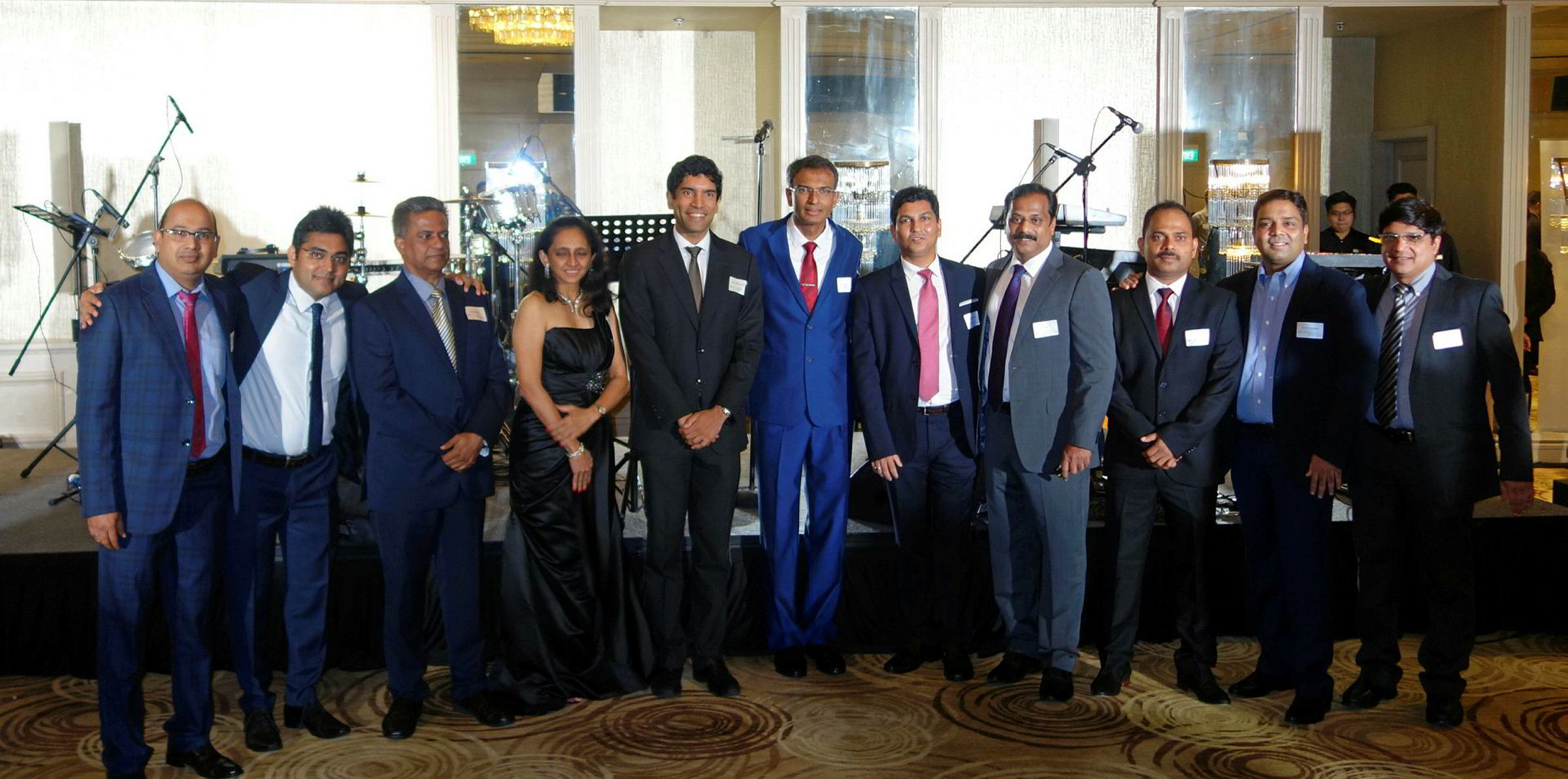
Branching out
Starting its own dedicated liner services prompted further investment in land-based logistics and terminal services.
Transworld Group Singapore joined forces with Container Corp of India (Concor), a subsidiary of Indian railways, to build a large inland container terminal and freight station in Dadri, on the outskirts of New Delhi.
Transworld Group Singapore subsequently bought out Concor’s stake, rebranded the operation Transworld Terminals and opened similar facilities in Nava Shiva, Tuticorin, Calcutta and Nepal. Chennai is next on the agenda.
“These inland terminals are good for decongesting Indian ports. They have all that is needed for safe storage,” said Sivaswamy.
To provide door-to-door service for BLPL Singapore’s customers, Transworld Group Singapore set up Transworld Global Logistics Solutions (TGLS), a logistics services company that has since branched into air freight, land transport services, breakbulk and project cargoes.
TGLS has a presence in all countries across the Orient Express Lines Singapore and BLPL Singapore route network, with a Dubai operation set to begin in late September.
Another new venture called TLPL Integrated has also launched in India. This venture “will look at all sorts of things from freight forwarding to special projects”, Sivaswamy said.
“There is a lot happening in India and we don’t want to miss out.”
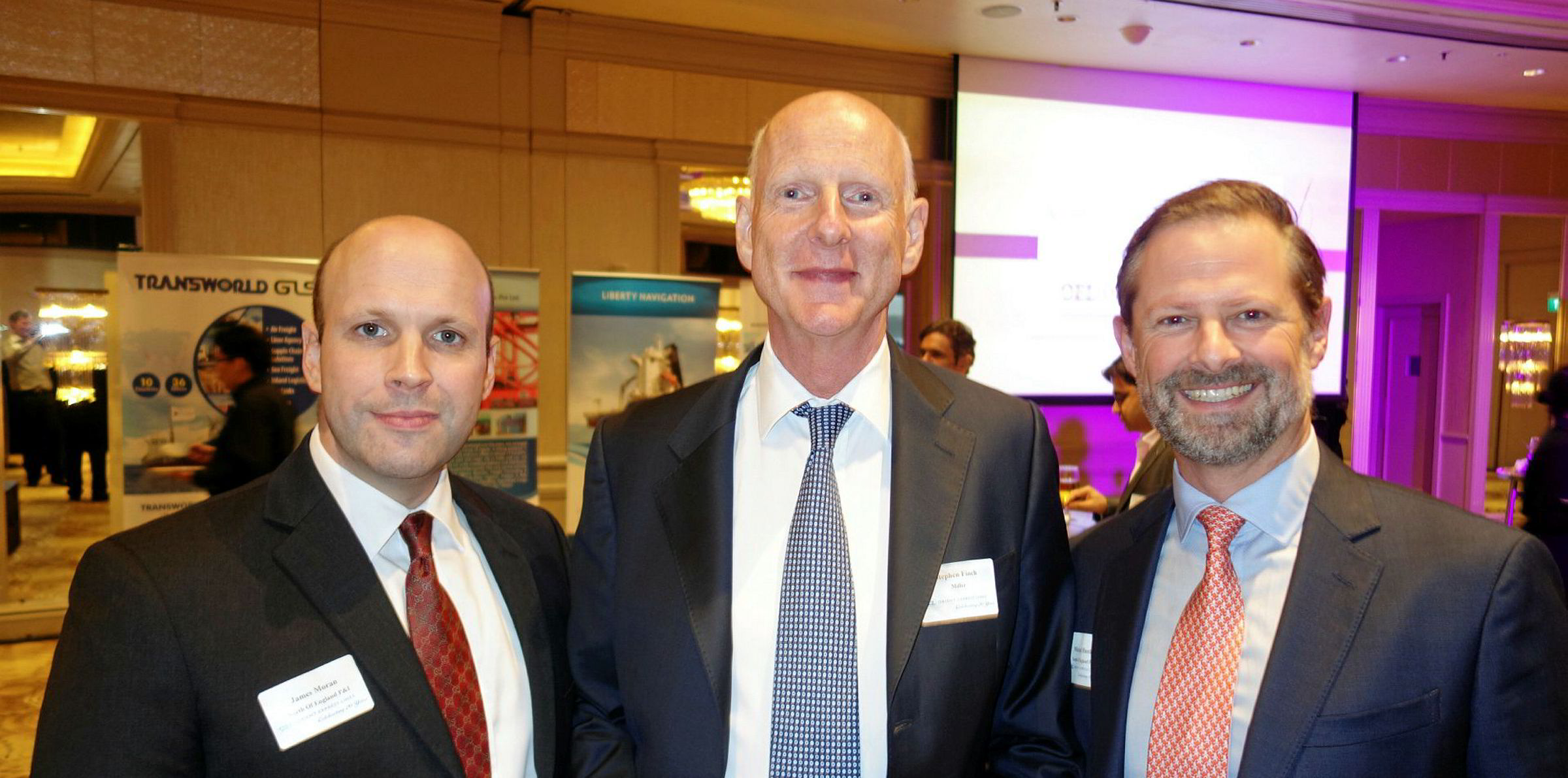
Feeders still core
The expansion of Transworld Group Singapore into liner, logistics and terminals has seen the contribution of the Orient Express Lines Singapore feeder business drop to 20% of the company’s overall revenue, although Sivaswamy is adamant it remains a core part of the business.
“The OES [Orient Express Lines Singapore] feeder network is very Asia-focussed. Competition is tough here, but we all find our own niche,” he said.
Orient Express Lines Singapore uses 26 containerships to operate nine service strings covering Singapore, Vietnam, Malaysia, Bangladesh, Sri Lanka, India, Pakistan and the United Arab Emirates.
Its niche is calling at ports that are mostly shallow-draught river ports.
“The usual competition is there but it keeps the mainline players from coming in and running a feeder service with their 2,500-teu ships that have been cascaded down from their other services,” Sivaswamy explained.
This market can only handle containerships of up to 1,700 teu, so it is protected from the cascading of larger tonnage.
“Besides draught restrictions, there is invariably congestion for about three to four months per year in some ports in the Bay of Bengal, often caused by low water. That can keep ships waiting for a berth for up to a year,” he said.
“It makes it quite painful but it keeps the mainline operators out. We are quite used to it.”
Secondhand ships
Shipowning has been a key part of Transworld Group Singapore’s operating strategy right from the outset.
Its goal is to own up to half the ships it operates. Today, it owns 11 of the 26 ships that are operated by Orient Express Lines Singapore and BLPL Singapore.
The company has never returned to the newbuilding market since taking delivery of two ships from Singaporean shipbuilder ST Marine in 2007. Back then, it made sense to build new as tonnage availability was tight in the charter market and the price differential between secondhand vessels and newbuildings was minimal.
Today, the market for feeder-sized ships is very different, and Sivaswamy believes that secondhand purchases are the best option.
“You can’t get the freight to match the capital costs of a newbuilding,” he explained.
Transworld Group Singapore’s preference is for feeder-sized containerships of between 13 and 15 years old. It aims to buy one or two ships every year.
In April, the company completed a $12.5m deal to acquire the 1,155-teu containerships Asiatic Jade (renamed OEL Fortune, built 2005) and Asiatic Glory (renamed OEL Progress, built 2006) from Asiatic Lloyd, the Singaporean affiliate of Germany’s Hanseatic Lloyd.
Both were handed over in August but had spent the preceding year on charter to Orient Express Lines Singapore.
Orient Express Lines Singapore has another two identical sisters on charter from Asiatic Lloyd, which Sivaswamy said he would be interested in buying should they be made available for sale.
Technical management of the Transworld Group Singapore fleet is handled by Providence Ship Management, the company’s inhouse technical manager.
The Providence team is busy preparing for IMO 2020, with the decision having been taken to operate the ships using low sulphur fuel.
Fitting scrubbers on small containerships engaged in short-distance trades is not a viable option, which means that Orient Express Lines Singapore and BLPL Singapore’s competitors will also be running their ships on low sulphur fuel.
“None of our market peers are buying scrubbers. It means we will have a level playing field,” said Sivaswamy.
